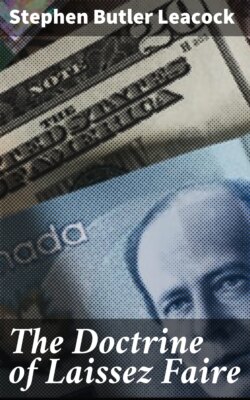Читать книгу The Doctrine of Laissez Faire - Стивен Ликок - Страница 3
На сайте Литреса книга снята с продажи.
Preface
ОглавлениеTable of Contents
The complexity of human thought, the multiplicity of facts and data to be handled in any extensive body of doctrine, seems to put a natural premium on brevity and compactness of expression. There is an inevitable tendency for convenience sake to compress the intricacies of argument into the solidity of a single sentence. Hence the maxim or catchword finds its place in the mechanics of human thought. It is easily rememberable, easily handled and, if expressed in antithetic or paradoxical form, cogent in common disputation. It has, however, the defects of its qualities. Its very brevity is apt to make it inexact and over comprehensive: it lends itself to ambiguity and does not allow for exceptional cases. It can thus cover in citation a multitude of sins.
This is eminently the case with the maxim laissez faire which has haunted the economic theory of the nineteenth century. Round no single economic dictum has the strife of factions raged more keenly. It has been made the subject of an attack and defense without any consensus of opinion as to its exact signification. Popular opinion has tended to interpret it as limiting the sphere of government to the sole function of protection. In this form it has been placed among the supposed tenets of earlier economists and has long afforded a target for the denunciation of humanitarian critics.
It is the aim of the present essay to see in how far this current conception of laissez faire may find support in the writings of reputable economists. With this end in view an examination has been made in some detail of the evolution of economic theory in reference to the proper functions of government. To supplement this is added a general view of the actual sphere of governmental activity in the nineteenth century in order to illustrate the interdependence of legislative policy and economic theory. It is hoped that from this study some suggestive inferences may be drawn as to the historical signification of laissez faire and its fitness to stand for the economic ideas of the present day.
